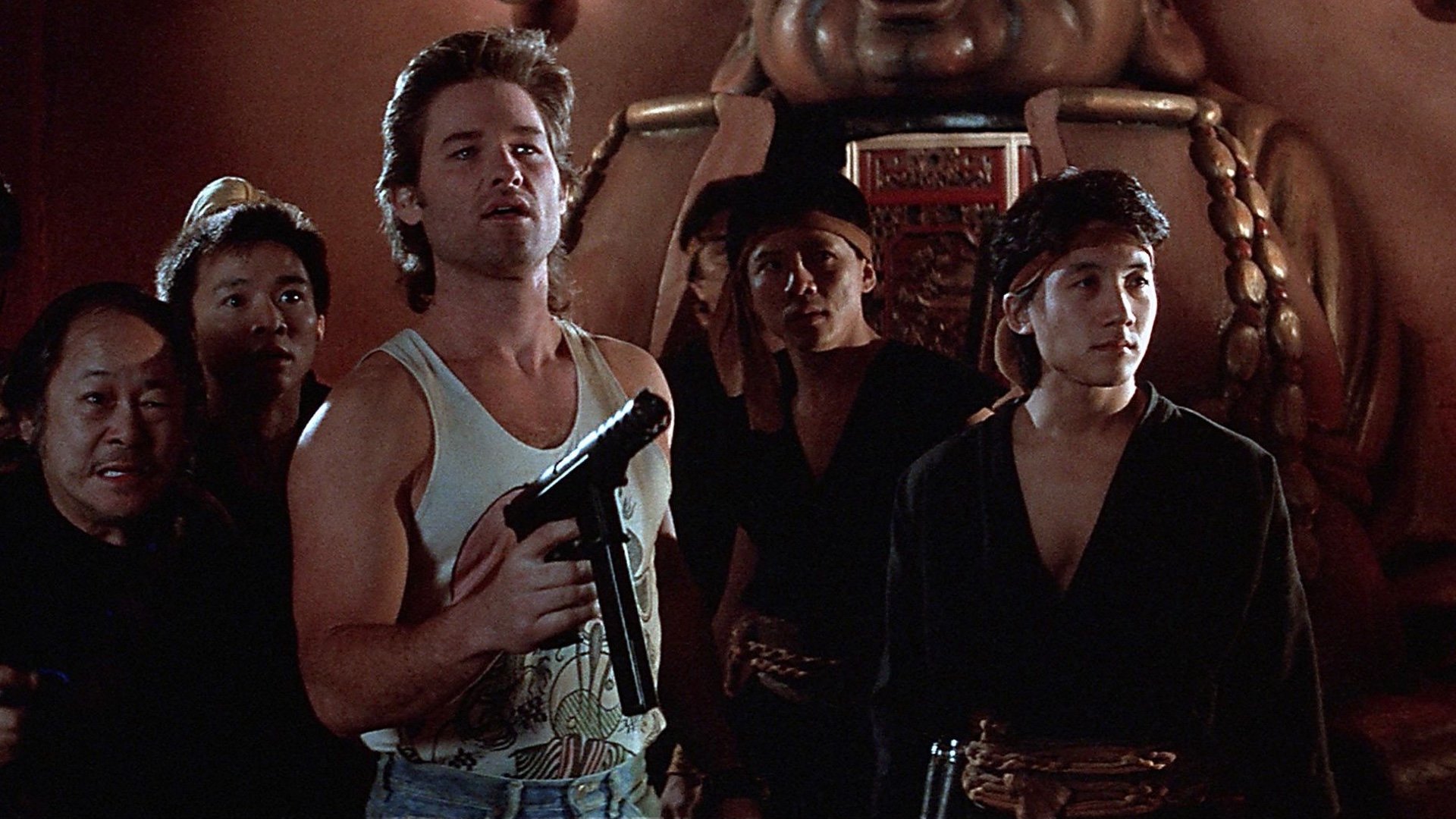John Carpenter's BIG TROUBLE IN LITTLE CHINA Was Originally a Western Set in The Late 1800s
John Carpenter and Kurt Russell’s 1986 film Big Trouble in Little China is one of my favorite films when I was growing up. It was just such a fun movie with a lovable character…good ol’ Jack Burton! This is easily one of my favorite Kurt Russell movie characters.
Jack Burton is a wisecracking truck driver and in the story, after his truck is stollen he’s “suddenly hurled into a wild adventure even he could never invent. At the root of it all is Lo Pan, a 2,000 year old evil magician who rules an empire of spirits beneath San Francisco’s Chinatown. Doomed to a fleshless existence, he can only be saved by a green-eyed Asian beauty. When the fiancé of Jack’s friend is kidnapped by Lo Pan’s minions, Jack goes to the rescue. He finds himself dodging demons, grappling with goblins and facing baffling terrors like the Room of the Upside-Down Hell as he battles his way through the labyrinth of Lo Pan’s dark domain.”
Carpenter offered a perfect description of the main character saying: “Jack Burton is a guy who is a sidekick but doesn’t know it. He’s an idiot-blowhard. He’s an American fool in a world that he doesn’t understand.”
The movie was originally going to be so much different, though! The original script written by Gary Goldman and David Z. Weinstein, and it was actually a western set in the late 1800s.
Goldman was initially inspired by the new wave of martial arts films that were coming out that had "all sorts of weird actions and special effects, shot against this background of Oriental mysticism and modern sensibilities". In his story, Jack Burton was a cowboy who rides into town and finds himself on a crazy adventure after his horse is stolen instead of his truck. The story combined Chinese fantasy elements with the western.
Goldman revealed details in an interview with Entertainment Weekly: “Ours was about a cowboy in Chinatown in 1899. Instead of a truck driver, he worked providing meat to feed the Chinese workers who were building the railroad.”
The script was submitted to executive producers during the summer of 1982. Paul Monash bought their script for 20th Century Fox, and he had them do at least one re-write, but still didn’t like the results. Goldman goes on to say: "The problems came largely from the fact it was set in turn-of-the-century San Francisco, which affected everything-style, dialogue, action".
Goldman ended up rejecting a request by the studio for a re-write where they asked for several major alterations. He was angry when the studio wanted to update the story to a contemporary setting. So, the studio ended up removing the writers from the project and replacing them with W.D. Richter to extensively re-write the script.
Richter felt that the Wild West and fantasy elements didn't work together and ended up modernizing everything. Pretty much, almost everything in the original script was scrapped, except for Lo Pan's story. Richter said: “When I first started reading (the script), I realized what it needed wasn't a rewrite, but a complete overhaul. It was a dreadful screenplay.”
He ended up writing his own draft of the script in ten weeks. Goldman actually contacted Richter at one point and told him that he shouldn’t work on the project. Richter told him: "I'm sorry the studio doesn't want to go forward with you guys, but my turning it down, is not going to get you the job. They'll just hire someone else".
Goldman and Weinstein still wanted writing credit on the project, but the studio eliminated their names from press releases, as they wanted only Richter to have credit. But, in March 1986, the Writers Guild of America west determined that "written by" credit would go to Goldman and Weinstein, based on the WGA screenwriting credit system which protects original writers.
Richter ended up with an "adaptation by" credit for his work on the script. Carpenter was actually disappointed that Richter did not get a proper screenwriting credit because of the ruling. Carpenter also made his own additions to Richter's rewrites, which included strengthening the Gracie Law role and linking her to Chinatown, he removed a few action sequences due to budgetary restrictions and eliminating material that he thought would be too offensive to Chinese Americans.
In the end, I loved the movie that Carpenter delivered. But, I think the original western version of the story would have been awesome as well!
We talked about this movie on our Secret Level podcast and there’s a lot of fun trivia that we uncover and discuss and we also offer some amusing commentary.
